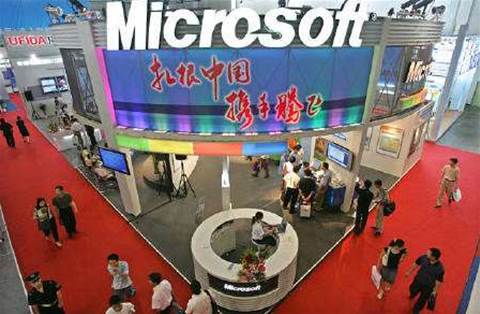SEATTLE (Reuters) - Lawyers for Microsoft and Google wrapped up their arguments on Wednesday over whether a senior executive familiar with the world's number one software maker's plans in China should be allowed to work at the Web search provider pending a January trial.
Google is asking King County Superior Court Judge Steven Gonzalez to let former Microsoft vice president Kai-Fu Lee start recruiting software engineers in China and establish an office for the web search leader in that country without delay.
Microsoft attorney Karl Quackenbush asked for a preliminary injunction, saying that Lee should not be allowed to work at Google while he is still bound by a non-compete contract that he signed with Microsoft. The contract is binding until July 2006, but Microsoft filed a motion for a preliminary injunction ahead of the trial scheduled for January 2006.
Gonzalez said he would issue his ruling on the preliminary injunction on 13 September at 10am Pacific time (1700 GMT).
Google's lawyer, John Keker, argued that Lee had not worked directly on any China or search-related projects at Microsoft before Google hired him.
Lee, 43, had established Microsoft's research and development centre in Beijing before moving to Redmond to work on software that allows computers to process speech and natural language data.
Keker said that Microsoft "greatly exaggerated" Lee's role in planning the software giant's China strategy: "There's no basis for an injunction," he said.
Microsoft disagreed, saying that Lee held several regular high-level discussions about China with Microsoft chairman Bill Gates, chief executive Steve Ballmer and other top executives.
"Google hired Dr Lee to do what he did for us," Quackenbush said.
Microsoft won a temporary restraining order against Lee and Google in July. Google, based in Mountain View, California, counter-sued in its home state to block Microsoft's lawsuit.
The courtroom arguments are the first chapter in a widening conflict between the two companies, which are becoming the technology industry's most visible competitors as they face off in the web search and services, and seek to hire top software engineering talent.
Witness testimony in the latest hearing revealed several dramatic incidents. Lee said Gates yelled at him with a string of expletives when he said he was leaving for Google, and another witness said that CEO Steve Ballmer had hurled a chair in his office when he heard that Google had lured Lee away.
Lee also said he was disappointed with Microsoft's efforts in China and that the Redmond, Washington company had little to show for its investment and efforts there.
The trial also revealed that Google was willing to pay Lee a compensation package worth more than US$10 million to hire him away from Microsoft, an offer that Microsoft's lawyers said was "unprecedented" at the search company.
Microsoft also said Lee passed on key strategic information on China to Google while still working at Microsoft until he quit in mid-July. Lee gave a report entitled "Making it in China" that he had presented to Gates and Ballmer to Google CEO Eric Schmidt after removing a "confidential" notice and editing out some parts of the report, Quackenbush said.
Google, on the other hand, argued that Microsoft was suing Google and Lee to make an example of him to other employees.
"This is all about feeding on Google and trying to intimidate other (Microsoft) employees from leaving," Google attorney Keker said.
Microsoft, Google await China expert hire ruling
By
Reed Stevenson
on Sep 8, 2005 12:30PM

Got a news tip for our journalists? Share it with us anonymously here.
Partner Content

Shared Intelligence is the Real Competitive Edge Partners Enjoy with Crayon

How Expert Support Can Help Partners and SMBs Realize the Full Value of AI

Beyond the box: How Crayon Is Redefining Distribution for the Next Era

MSPs with a robust data protection strategy will achieve market success
.jpg&h=142&w=230&c=1&s=1)
New Microsoft CSP rules? Here’s how MSPs can stay ahead with Ingram Micro







.jpg&w=100&c=1&s=0)
_(8).jpg&w=100&c=1&s=0)











